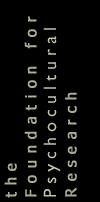Overview
FPR-UCLA Fourth Interdisciplinary Conference
Cultural and Biological Contexts of Psychiatric Disorder
Implications for Diagnosis and Treatment
January 22-24, 2010
Friday - Sunday
University of California, Los Angeles
Our concept of mental illness in the West is largely shaped by the DSM diagnostic model. The DSM categorization of psychiatric disorders has been useful in driving research, and psychiatric neuroscience has made enormous strides in identifying some of the brain-based factors that contribute to mental disorders such as autism, schizophrenia, and bipolar disorder, as well as suggesting possible drug therapies. However, both neuroscientists and anthropologists have raised questions about the validity and utility of these categories. Neuroscientists are concerned that the categories obfuscate the key brain-behavior linkages underlying pathological processes. Anthropologists on the other hand argue that the categories are largely social constructions and that the current neurobiological zeitgeist minimally attends to social and cultural processes of mental illness. Much still remains unknown, particularly how the social and cultural worlds interact with neurobiological processes to produce mental symptoms that we recognize as depression or psychosis in everyday life and what this interaction implies for diagnosis and treatment.
The aim of this conference is to improve the quality of psychiatric diagnosis and treatment by giving specific attention to biological and cultural contexts and their interactions. Given the abundant criticism directed to both the biological and cultural validity of current DSM diagnostic categories, the focus is particularly important and timely. Revisions to the DSM are now underway that attempt to incorporate divergent cross-cultural aspects of mental illness, as well as underlying neurobiological factors common to different disorders. Both areas will be addressed at the conference in presentations and panel discussions.
The conference will be unique in several ways: its interdisciplinary focus; the quality of scholarship by a group of distinguished contributors from history, neuroscience, anthropology, and psychiatry; and the emphasis on identifying key questions and research opportunities at the intersection of biology and culture. To increase understanding of the experience of living with an autism spectrum condition or schizophrenia, the program has been designed to move between formal talks, personal stories, and observations from anthropological fieldwork.
The conference is designed to appeal to a wide audience: clinicians, researchers, social workers and therapists, neuroscientists, anthropologists, and others interested in the science, experience, diagnosis, and treatment of mental illness.

![The Foundation for Psychocultural Research [logo]](images/gui/logo.gif)
